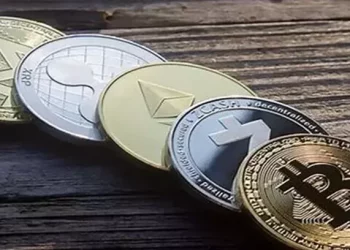Digital currency, often referred to as cryptocurrency, is a form of decentralized digital payment that operates independently from traditional banking systems. Since the inception of the first cryptocurrency, Bitcoin, in 2009, the concept of digital currencies has been gaining popularity and attracting more users worldwide. However, one of the most commonly asked questions regarding digital currencies is who controls them.
Unlike traditional currencies issued and regulated by governments and central banks, digital currencies operate on a decentralized blockchain network. This means that no single entity controls the currency or its transactions. Instead, the security of the network is maintained through a consensus mechanism, where all participants in the network verify transactions and agree on the validity of each transaction.
The lack of centralized control is one of the main reasons why many people are attracted to digital currencies. It eliminates the need for intermediaries such as banks, which can reduce transaction costs and increase financial privacy.
However, despite the decentralized nature of digital currencies, some entities do exert some control over them. For example, developers who create and maintain the software that powers cryptocurrencies can make changes to how the system works. In some cases, these developers have significant influence over the direction of the currency and may be able to make decisions that affect its value and adoption.
Another way that digital currencies can be influenced is through mining, the process by which new units of a cryptocurrency are created. Mining requires specialized computer hardware and consumes a significant amount of electricity, which means that those who control large amounts of computing power have an advantage in the process. In some cases, this has led to concerns about the concentration of power among mining pools, which could potentially manipulate the network for their own gain.
Regulatory bodies also have some degree of control over digital currencies. While they cannot directly control the network itself, they can regulate exchanges and other services that facilitate the purchase, sale, and exchange of digital currencies. Governments can also impose taxes on the use of digital currencies and may take action against individuals or businesses that use them for illegal activities.
In conclusion, the decentralized nature of digital currencies means that no single entity controls them. However, developers, miners, and regulatory bodies can all exert some degree of influence over how these currencies are used and valued. As digital currencies continue to grow in popularity and adoption, it will be important to monitor these sources of control and ensure that they do not undermine the benefits of decentralization.

















